Institutes of the Christian Religion
1541 Edition
| Weight | 2.56 lbs |
|---|---|
| Dimensions | 8.8 × 5.75 × 2.2 in |
| ISBN | 9781848714632 |
| Binding | Cloth-bound, eBook (ePub & Kindle), Cloth-bound & eBook (ePub & Kindle) |
| Topic | Doctrines of Grace, General Theology, Jesus Christ, The Holy Spirit, Christian Living |
| Original Pub Date | 1541 |
| Banner Pub Date | Sep 18, 2014 |
| Page Count | 920 |
| Scripture | Whole Bible |
| Format | Book |
Endorsements
‘Any who wish to encounter Calvin’s systematic theology at its most pastoral, freest from controversial preoccupations, and mediated through superlative translation, should devour this rendering of the Reformer’s own French version of the second edition of his Institutes.’ — J. I. PACKER
Book Description
Institutes of the Christian Religion is Calvin’s single most important work and one of the key texts to emerge from the Reformation of the sixteenth century. The book accompanied the Reformer throughout his life, growing in size from what was essentially an expanded catechism in 1536 to a full-scale work of biblical theology in 1559-60.
Among the intermediate editions of the Institutes, none deserves to be better known than the first French edition of 1541.
Avoiding the technical details and much of the polemics of the final work, the Institutes of 1541 offers a clear and comprehensive account of the work of Father, Son, and Holy Spirit in creation, revelation, and redemption in the life of the individual Christian and in the worship and witness of the church.
Not doctrine only but its practical use is Calvin’s abiding concern. The author of the Institutes invites us both to know and to live the truth, and thus allow God’s Spirit to transform us.
The present translation is newly made from the French of 1541. It has been designed and annotated with the needs of a wide readership in mind.
Review
From the Translator
Table of Contents Expand ↓
| Translator’s Introduction | vii | |
| Outline of the Present Book | xv | |
| Prefatory Letter to Francis I | xvii | |
| Institutes of the Christian Religion (1541 Edition) | ||
| Chapter 1: The Knowledge of God | 1 | |
| Chapter 2: The Knowledge of Man and Free Will | 29 | |
| Chapter 3: The Law | 109 | |
| Chapter 4: Faith, with an Explanation of the Apostles’ Creed | 183 | |
| Chapter 5: Repentance | 295 | |
| Chapter 6: Justification by Faith and the Merits of Works | 351 | |
| Chapter 7: The Similarity and Difference between the Old and New Testaments | 429 | |
| Chapter 8: The Predestination and Providence of God | 463 | |
| Chapter 9: Prayer, with an Explanation of Our Lord’s Prayer | 517 | |
| Chapter 10: The Sacraments | 561 | |
| Chapter 11: Baptism | 579 | |
| Chapter 12: The Lord’s Supper | 623 | |
| Chapter 13: The Five Ceremonies Falsely Called Sacraments | 669 | |
| Chapter 14: Christian Freedom | 707 | |
| Chapter 15: The Power of the Church | 721 | |
| Chapter 16: Civil Government | 755 | |
| Chapter 17: The Christian Life | 785 | |
| Appendix: Comparative Table of the 1541 and 1560 Institutes | 823 | |
| Index of Scripture References | 837 | |
| Index of Names | 873 | |
| Index of Principal Subjects | 877 |
More items to consider:
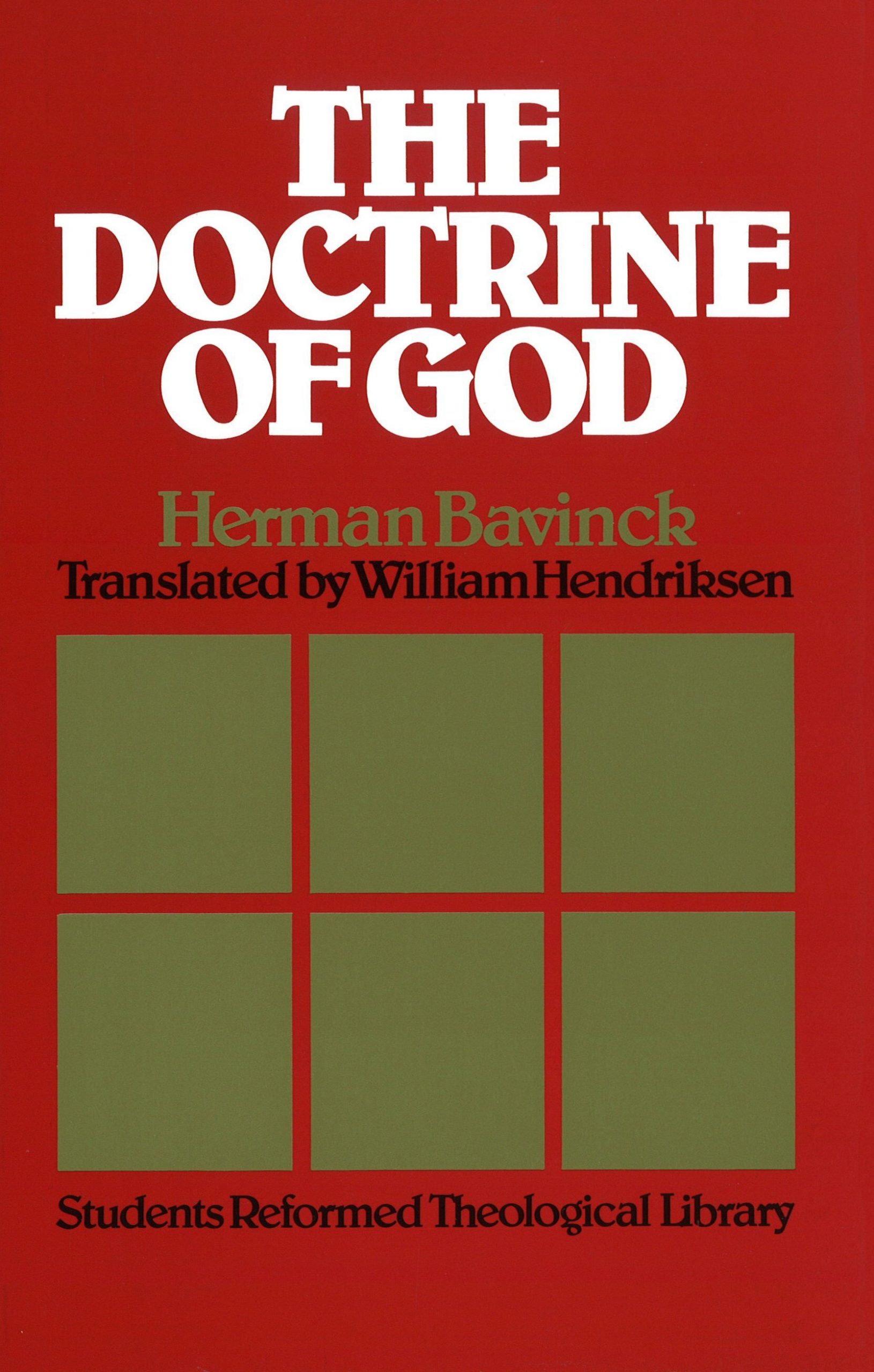
Description
Institutes of the Christian Religion is Calvin’s single most important work and one of the key texts to emerge from the Reformation of the sixteenth century. None deserves to be better known than the first French edition of 1541.
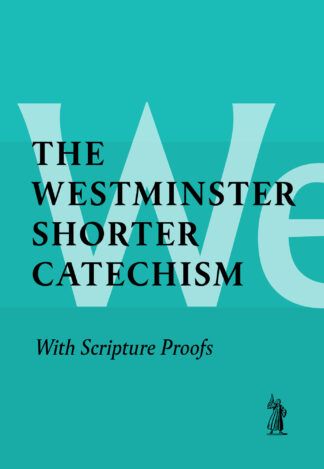
The Shorter Catechism
With Scripture Proofs
Description
Institutes of the Christian Religion is Calvin’s single most important work and one of the key texts to emerge from the Reformation of the sixteenth century. None deserves to be better known than the first French edition of 1541.

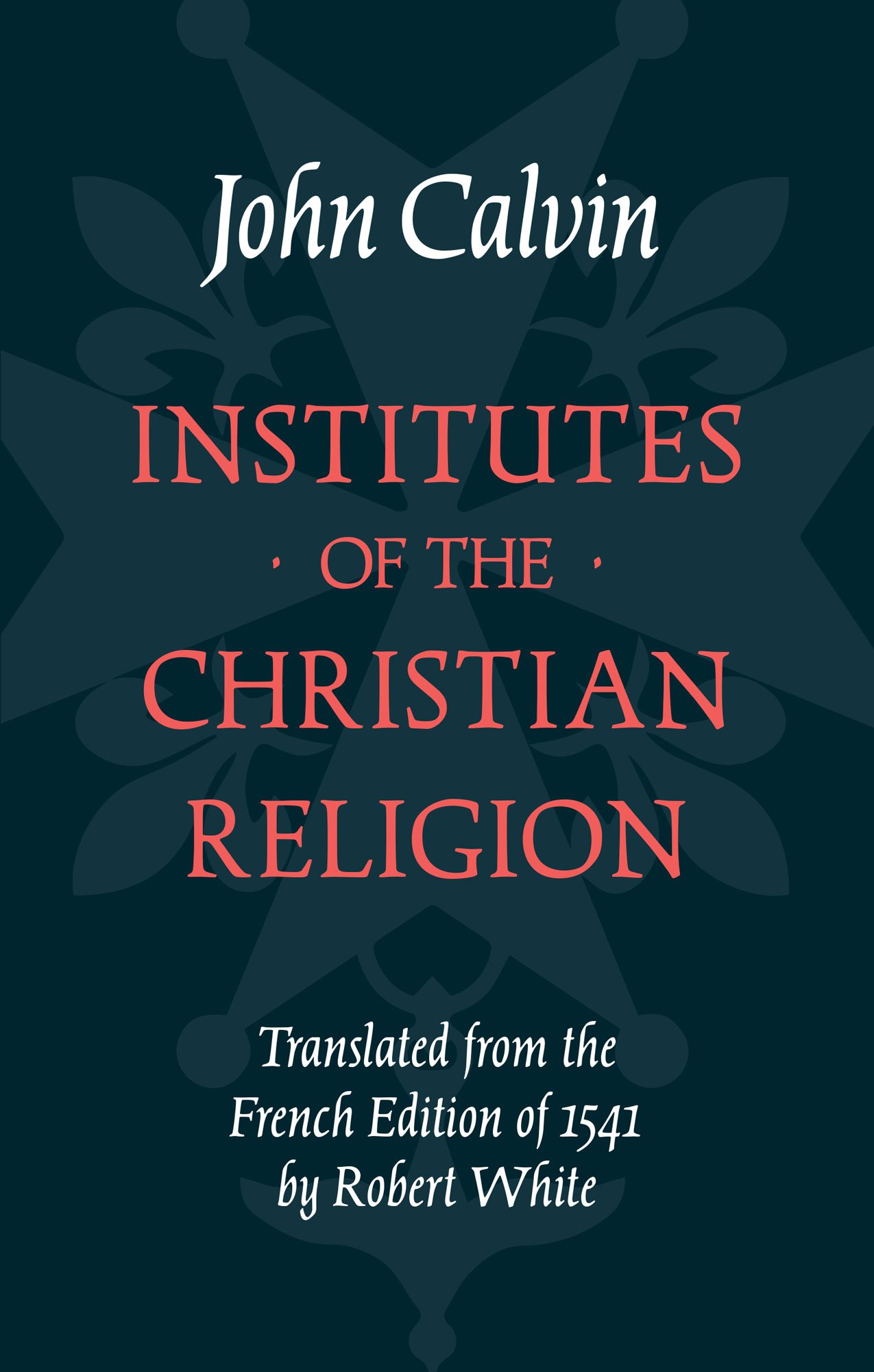
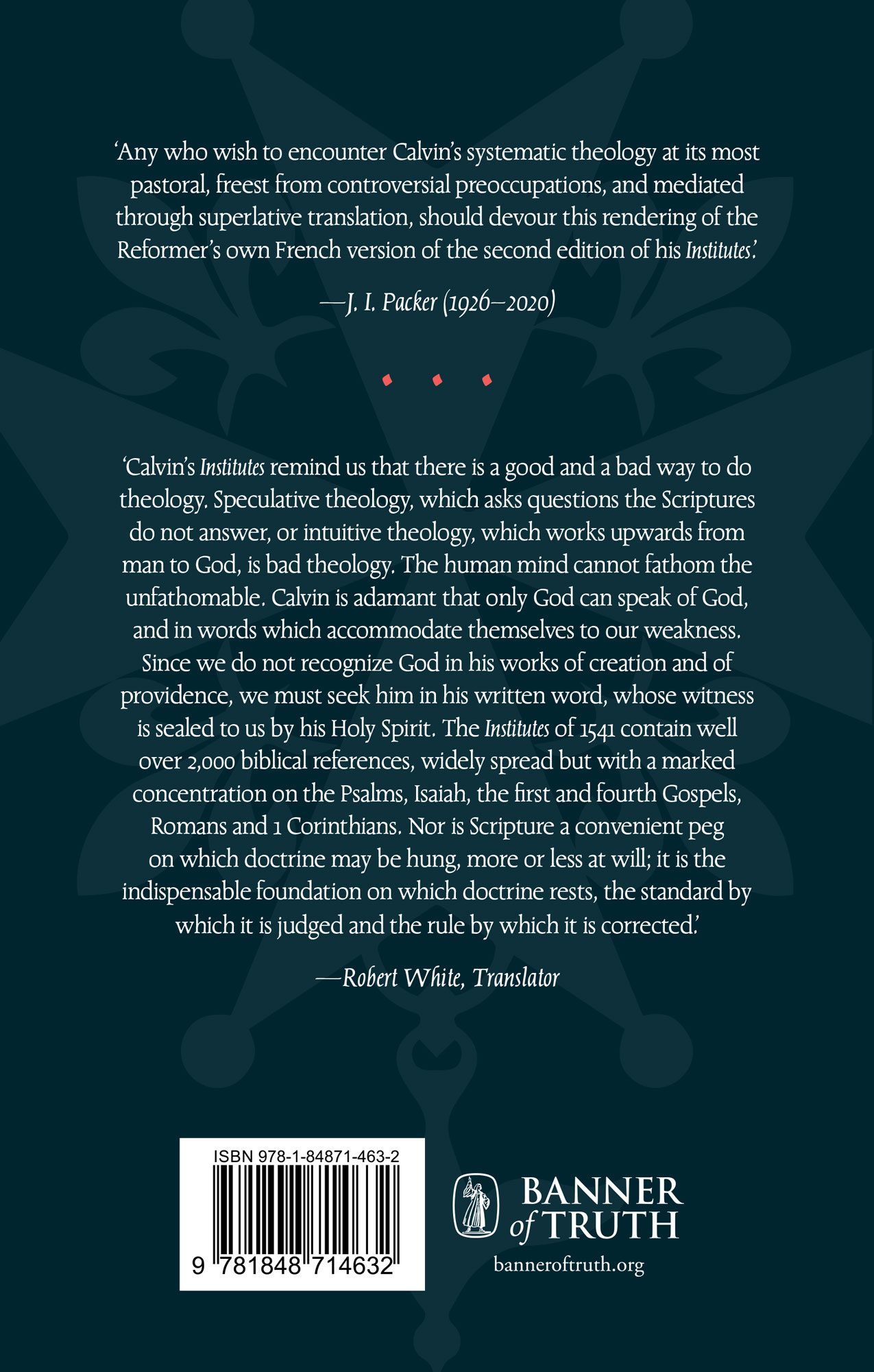
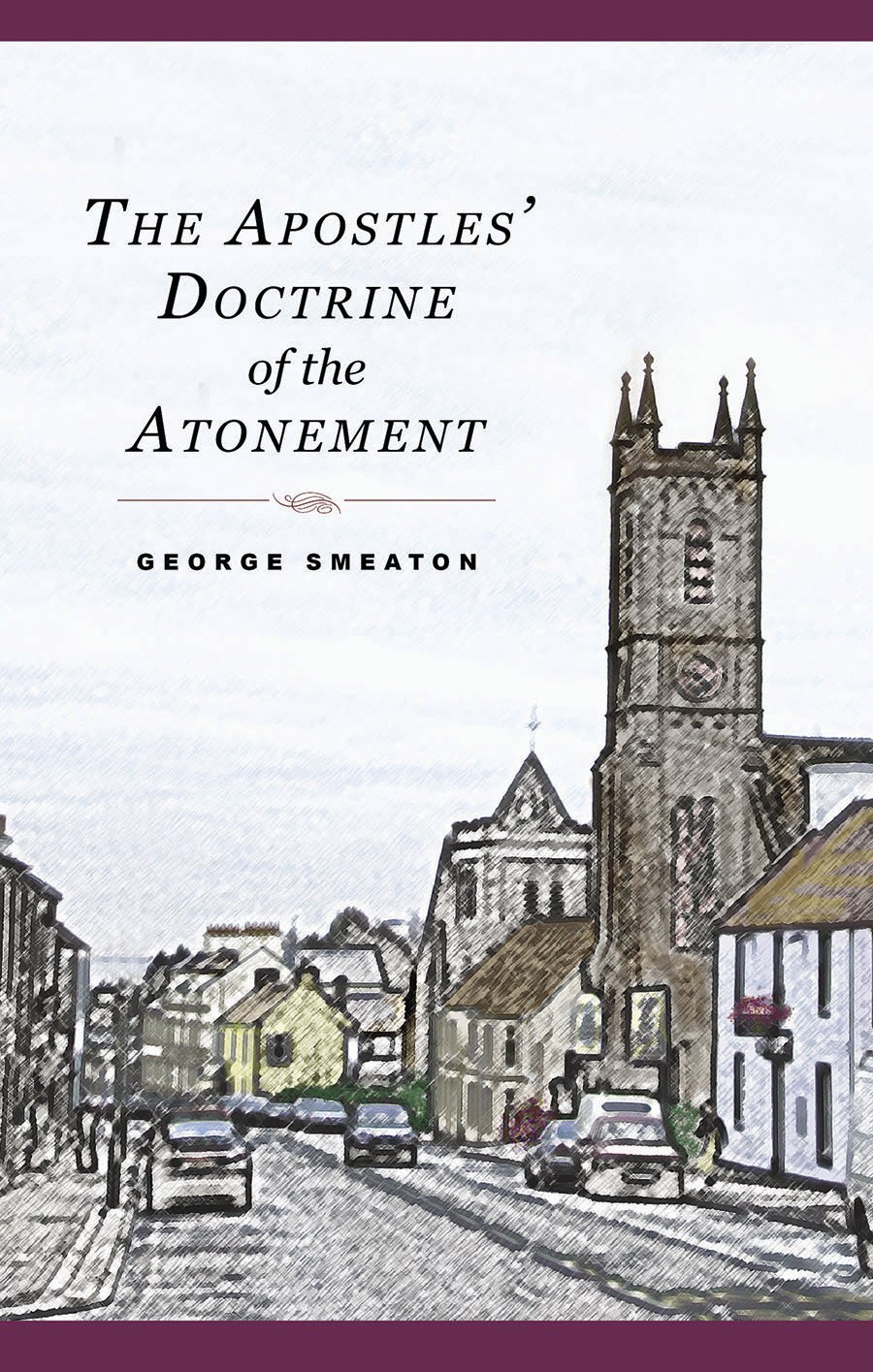
Brian K. Young –
Wonderful! A fresh translation, accessible, rich in truth, devotional. Very recommended.
Jordan D. –
This is my favorite edition of the Institues. Translated from French, Calvin’s native tongue, it is a fresh and lucid version that I reach for and reference often.
Weston Eldridge –
If you ever ask a reformed theologian or pastor what are the top 10 books they recommend to anyone new to the Christian faith, it seems that Calvin’s Institutes is almost always in the list. They don’t even have to be a reformed theologian, though. I have heard countless quotes and references to Calvin’s seminal classic for years. I decided, after some apprehension (because let’s face it, at 822 pages this book is long and therefore intimidating, and that’s only the 1541 edition) to read this massive book, to study it and reflect on a lot of what I read. This turned out to be a great decision.
Background first
So first, some background on this book. When people think of or talk about Calvin’s Institutes they most assuredly are thinking of the two-volume work published in 1960 edited by John T. McNeil and translated by Ford Lewis Battles. This is the English version of the 1559 Latin text edition of the Institutes. Hopefully, you’ve noticed some disparity in the dates. This is a review/post on the 1541 edition, but I just mentioned the most familiar edition is the 1559. What’s up with that? Well, almost 25 years separates the first edition of the Institutes from the final version, which was initially Latin and a year later, in 1560 Calvin translated it into French. The very first edition of the Institutes was published in 1536 by Calvin. The goal of the Institutes was simple: It was a primer for the absolute essential doctrines of Christianity. The first edition was a huge success, which that honestly is an understatement. So 3 years later, Calvin more fully expounded and exposited on the previously released edition and released a very much enlarged edition (the second edition) in 1539 in Latin. However, Calvin recognized that his audience was small and limited with just the Latin edition, so in 1541 he published this revised and expanded edition in French. Now his audience of countrymen and contemporaries grew exponentially. Calvin referred to his 1541 French edition as the “essentials” edition for many reasons, vanguard of those reason was it being disseminated and published in the normal tongue of the day. Calvin continued editing, expanding and enlarging his Institutes throughout the rest of his life as he progressively gained more knowledge of Scripture and hermeneutical, exegetical and theological understanding of Christian doctrine, until 1559.
This version is a new (published first in 2014) translation of the 1541 edition from French to English. This book has incredible strengths. The clarity of the English is almost startling, especially when one realizes this is a translation of a 16th century book! There weren’t many passages I had to re-read to understand. The book’s translation is very clear, and according to other reviews of this edition, the English is extraordinarily faithful to the original French texts. I love having such clear fidelity. This is a huge strength about this book.
A Brief Overview
This edition covers 17 chapters, starting from man’s knowledge of God and ending with the Christian life. It is a little shorter than the two volume edition of the 1559 Institutes. Probably the most familiar chapter among all of Calvin’s works is his chapter on man’s knowledge of God—this is by far the most often referenced section of the Institutes. “The whole sum of our wisdom—wisdom, that is, which deserves to be called true and assured—broadly consists of two parts, knowledge of God and knowledge of ourselves” (p. 1). This thesis is proven beautifully with pithy metaphorical statements, myriad Biblical cross references and extremely sharp prowess from Calvin’s pen. I was blown away with the clarity of his points and how easy they were to understand. However, this doesn’t stop with this first thesis, he does this over and over again in every single section of this book. One of my favorite things about Calvin is he doesn’t try to make the elusive and difficult passages and doctrines intimidating. He explains them in very simple ways, assuring you that in fact much of it is simple, but it’s our sinfulness that often fogs things.
This book was written in the 16th century during the Reformation. Therefore, this book is quite saturated with critiques of Roman Catholicism. The guidance offered on recovering Biblical Christianity is magnificent in this work. I have never read any author who has such a systematic understanding of Scripture as Calvin, albeit this is mainly what he is remembered for—his understanding of Scripture. I am so thankful for these titans of the Christian faith who offer us such guidance. It is no surprise, then, that Calvin is referred to by many as one of the greatest and influential theologians of Church history.
More on his style
Calvin wasn’t joking when he critiqued Catholic theologians and their theology. He often refers to them as “monkeys” and their explanations as “monkey tricks”. I found this humorous, though the time separating me from Calvin’s era is massive (almost 500 years) and I know that these titles were much more serious in his day. Also, I must add that his chapter on the similarity and difference between the Old and New Testaments was incredible. I learned so much and never realized how often the Old Testament speaks of Heaven. What Calvin is most known for today, likely because of how controversial it is, is his view and teachings on Predestination. He devotes quite a meaty chapter to this topic. I’d recommend anyone, whether you’re prescient or Augustinian in terms of your view on election, to read this chapter. It truly will be edifying and eye opening. Calvin constantly goes back to Soli Deo Gloria—he consistently is bringing doxology into his teachings and explaining how every single aspect of Christianity is for God’s glory alone.
I recommend this to any Christian, no matter their maturity or understanding of God’s word to read this. It’s a big book, though, but it’s one that should be on your book shelf I believe. Why? Because the clarity Calvin offers is magnificent; he has an extraordinary systematic understanding of Scripture; he is Biblical and lets Scripture rule, not his experience, emotions or desires. Perhaps reading a little of each section daily for about a year or so would get you through the entire book and it would be tremendously edifying. Some notable guidance (though, I am not writing a lot about this book since it is so long I can’t cover it all on here!) I found was on the power of the keys and what Jesus meant in Matthew 16 in his elusive words, “And I tell you, you are Peter, and on this rock I will build my church, and the gates of hell shall not prevail against it. I will give you the keys of the kingdom of heaven, and whatever you bind on earth shall be bound in heaven, and whatever you loose on earth shall be loosed in heaven” (16:18, 19). I’ll leave that as a teaser in hopes that you will go read his section on this. This interpretation very much has influenced the classical Protestant understanding of this words juxtaposed to Rome’s understanding.
Overall, my final words concerning this book are this: Go buy it and start reading.
Richard D Tuttle –
Just purchased the 1541 edition of The Institutes of the Christian Religion and the companion volume titled Knowing God and Ourselves by David B Calhoun. Awesome! My plan is to use these volumes as my devotional for the next three years. Thanks to the Lord for his grace and mercy. Amen.
A J MacDonald –
I enjoyed reading through this book devotionally each morning. I highly recommend this book to all Christians. I found it to be very edifying. Many thanks for this very readable translation of the 1541 edition.
gilimeod –
This is so much easier to read than the Battle edition. Like many reviewers, I find this a pleasure to read. You really can’t finish it. You have to just get to the end and begin again – our minds our weak but the printed page is powerful. My only criticism is that there are not real Heading Numbers. I had to go through my edition and write in Chapter and Heading numbers (I also numbered each paragraph) so I now annotate my other books with cross references to the Institutes. I have even used it a bit in my Bible (don’t judge me!) when I run across a verse or passage that is particularly tied to something Calvin wrote. I haven’t finished, but I am also doing with with the Westminster Confession. It would really be nice if there was a Hyper Harmony that tied everything together (Hint for a Banner Project – no charge, just put me on the Wishlist).
God Bless
Randy
Frank Schnitzler –
Robert White’s Translation of John Calvin’s 1541 Institutes of the Christian Religion
I have recently received by mail Robert White’s stunning translation of John Calvin’s Institutes of the Christian Religion and would like to thank Robert White and the Banner of Truth publishers for this thoroughly delightful and necessary contribution to the ongoing rediscovery of John Calvin as a reformer, a theologian and a pastor.
Too often, and for too long, John Calvin has been largely ignored as nothing more than another name in the history of the Reformation. Except for stereotypical notions of “the five points of Calvinism” very few really know much about John Calvin. They don’t know of John Calvin’s value as a theologian. Nor do they know of his skill as an expositor of Scripture. Nor do they know that he penned one of the most important works of theology ever written. Nor do they know the beauty, clarity and precision of John Calvin’s literary style. Nor do they know that his work is as relevant today as it was nearly five hundred years ago. All they seem to know of John Calvin are his views on predestination. And I believe the reason for that narrowness, in part, is the lack of modern, readable translations of his work.
As a studious reader and collector of John Calvin books, having no fewer than eighty-some volumes in my library covering everything from commentaries and sermons to letters and tracts, I too have found the previously available translations of Calvin’s Institutes laborious reading.
Until now, my “go to” copy of Calvin’s Institutes has been the 1536 edition translated and annotated by Ford Lewis Battles as it is far more readable than Henry Beveridge’s 1845 translation and far less cluttered than the 1960 two volume translation by Battles.
Robert White and the Banner of Truth have bridged the gap between the previously available (somewhat difficult) translations of Calvin’s Institutes and the modern readers need for an up to date translation of Calvin’s historically important contribution to theological study.
Unlike the previously mentioned translations, Robert White’s translation flows with ease from sentence to sentence, paragraph to paragraph and page to page…it liberates Calvin from the dusty antiquated style of Beveridge and rescues him from the dizzying number of technical details cited by Battles.
Robert White’s translation strikes the right tone, the right pace and the right academic thoroughness to render his translation of Calvin’s Institutes a modern classic. And for many it will no doubt become the “go to” translation for those wanting to study Calvin’s magnum opus without wading up to their waists in convoluted sentences or up to their eyeballs in mind numbing marginalia.
Les Beech –
Read this during lockdown. I find it very difficult to believe it was written nearly 500 years ago. It is so refreshing and easy to read and gives a great understanding of the reformed faith. Please read this book it will give you a great insight into the reformation. Buy and love it, do not be put off by it’s size.
sunnyolsen –
John Calvin is my favorite teacher! I’m almost through my second reading of this edition of Institutes in 4 months and read the other edition at least a year ago. This is easy reading although deep and thorough, but it is life changing and edifying if you read in humbleness with the Spirit.
Every Christian should own and read this at least once and preachers should read it once a year. It is real spiritual food for our souls and shines a light on our path to salvation.
Randall Bachman –
I bought this when it first was published, thinking it was an update of the Battle edition. I was wrong, but upon reading it, I was glad. This is so much easier to read, and easier to quote in lessons. One major flaw, and I don’t know if the new printing fixes it, is the lack of paragraph and section numbering. I went through my copy and numbered ever heading, and then put a letter next to ever paragraph. So in my notes and cross references I can cite the exact location of a quote. But I highly recommend that subsequent editions attempt this more professionally. It will greatly aid in its broader use.
Daylan Nussbaum –
I bought this at the Basics Conference set up by Alistair Begg at Parkside Church. This dissertation is a beautifully bound, expertly translated, theologically sound masterpiece. In the twenty-first century, this systematic distillation of Biblical truth stands as a theological tree of Lebonon in the midst of the mere shrubs of modern evangelicalism.
james.denard21 –
This is a fantastic product. Robert White has done a great service to the church in providing this fresh, accessible translation.
As for the content of the book, I found it thoroughly edifying from start to finish. Calvin’s outline of the Christian faith is superb even 500 years later. He was just that skilled as a student of Scripture and a pastor. What struck me throughout is just how much of a pastoral heart Calvin had. He genuinely cared for all of Christ’s church and wished to see her free of blemish, for all Christians to worship God in Spirit and in truth.
My favorite parts were the chapters on Knowledge of God, Justification by Faith, Old and New Testaments, Prayer, and The Christian Life. As a 26 year old still establishing my theological foundations this book has been of great help, and will continue to be a help as I age and mature further. I will be recommending it to my fellow Christians, even outside of the Reformed tradition.